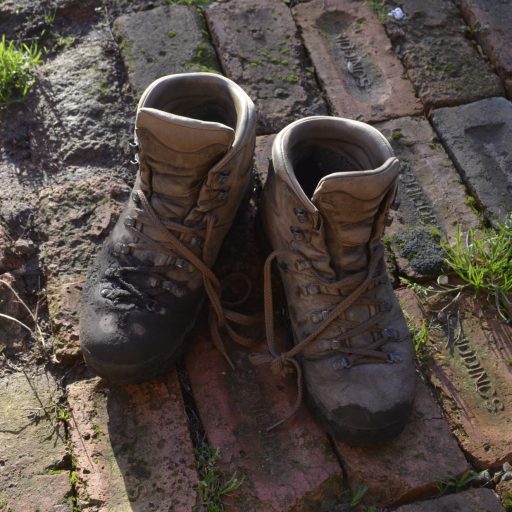 In CBT we often use behavioural activation to start people on path to feeling better and reclaiming their lives. The aim is for people to restart activities that mean something to them and will bring about positive feelings. Unfortunately, mental illness can last for so long that we forget the things that are important to us or things can change or the activities that used to make us happy are no longer possible. This is where walking can be a great starting point.
In CBT we often use behavioural activation to start people on path to feeling better and reclaiming their lives. The aim is for people to restart activities that mean something to them and will bring about positive feelings. Unfortunately, mental illness can last for so long that we forget the things that are important to us or things can change or the activities that used to make us happy are no longer possible. This is where walking can be a great starting point.
Why walking?
Although it might not spring to mind as everyone’s first choice of a fun activity, walking has been proven time and time again to improve mood and reduce the effects of mental illness.

The best thing about walking it is that it’s free and can be done by most people. Many people who are unable to walk can still reap the same benefits from spending time in the outdoors. It can also be a group or solo activity, allowing for the social benefits or much needed quiet time.
Walking can give a great sense of achievement. From just getting out of the house to do it, to building up the time and distance. It is easy to incorporate, weather you live in a large city or rural village there are always places to walk. By jumping off the bus a stop earlier or parking the car a distance from your destination and walking, it doesn’t take much planning. Just being in the outdoors can bring about feelings of pleasure, tranquillity, and well-being.
How it helps
Walking gives a sense of self-reliance and control stemming from getting out and doing something for and yourself. It is a fantastic exercise for giving a real opportunity to set and achieve goals and to see and measure personal improvement. It improves self-perception and self-esteem, mood and sleep quality, and it reduces stress, anxiety and fatigue. Physically active people have up to a 30% reduced risk of becoming depressed, and staying active helps those who are depressed recover.
Walking and depression
Walking can relieve depression by encouraging the production of the body’s natural opiates, called endorphins. These chemical cousins of morphine are responsible for the feeling of euphoria called “runner’s high.” Depression is often called the “common cold” of psychological problems, it is important to realise that your depression is not the result of some personal defect, it is often a signal that something needs to be changed in your life, walking could be that change. Engaging in activity when you are depressed is not easy, therefore the simplicity of planning and going for walk makes it so good.
It breaks the cycle of fatigue, depression leads to feelings of constant tiredness and fatigue. This can be a way of withdrawing from the world. Unfortunately, staying in bed and getting extra sleep often results in feeling more tired. A small amount of activity can break that cycle and lead to more energy and feeling refreshed.
Lack of motivation is often a massive hurdle in depression. Ironically, engaging in activity even when you feel unmotivated can lead to feeling further motivation to continue. A nice walk can help distract depressed people from their feelings of sadness. If energy and motivation are holding you back, CBT therapy can help you take those first steps.
Walking and anxiety/stress
Anxiety is often caused by feelings of unease or excessive worry about what might happen. It is very cognitive and many of the physical symptoms are triggered by negative thoughts and a lack of control of the future. Often the physical symptoms (shortness of breath, nausea, panic) feed these negative thoughts making the cycle spiral into something quite distressing.
The action of walking takes the mind away from these thought and in turn can ease the physical symptoms. By taking the focus away from the internal triggers and sensations it gives the mind a rest from worrying about the “what ifs”.
The stress hormone cortisol, which is released when the body goes in to fight or flight mode is reduced and dispersed during gentle exercise. Although it can increase temporarily during a brisk, more aerobic walk this can enable the body to deal with it better during stressful situations.
Anxiety and stress is often cause excessive and shallow breathing. Aerobic exercise such as walking can reduce the breathing rate and help the lungs to breath more deeply. Also, the endorphin that are released as a result of exercise can promote feelings of pleasure and well-being.
Walking and self esteem

As little as 5 of minutes’ exercise in the outdoors has been found to boost self-esteem. A study carried out in 2010 by Jules Pretty and Jo Barton of the University of Essex, compared the effects of exercising whilst looking at a blank wall compared to projected images of the outdoors, they found that the people who saw the green images had raised self-esteem and reduced blood pressure. It was also found that exercising on or near to water had the greatest improvement.
Simply going through the motions of confident striding may be enough to build a walker’s confidence. Also, since regular aerobic exercise is an important aid in losing weight and toning muscles walkers may feel the general sense of well-being that stems from knowing they look better and feel healthier.
Notice the benefits
One way to enhance this effect and track walking accomplishments is to use a daily log or diary. By noting down the distance walked or time spent outdoors walkers can keep track of achievements. It could also be useful to diary thoughts, feelings and concerns before going for a walk and compare them with how you actually felt when doing it.
Finally, unlike some more strenuous exercises, walking feels good while you’re doing it, not just when you stop.

If you would like to take that first step into becoming more active but feel that you need more support or help with motivation, CBT can help, contact me for further information or to book an appointment.
